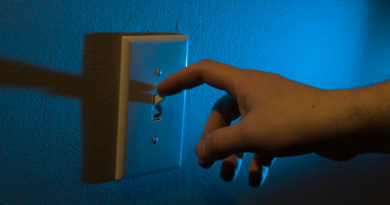Tingling in head: Possible causes – Medical News Today
Possible causes of tingling in the head include sinus infections, anxiety, headaches, diabetes, and more. Certain medications and a head injury may also cause tingling in the head.
Understanding related symptoms can help a person identify the possible cause of tingling in the head. However, if tingling persists or keeps coming back, it is best to contact a doctor for a proper diagnosis.
The doctor can then advise on treatments to help manage symptoms and the underlying cause.
Keep reading for more information on the possible causes of tingling in the head, as well as when to contact a doctor.
Sinus infections cause a person’s sinuses to become irritated and inflamed.
As the sinuses enlarge, they can put pressure on surrounding nerves. When this occurs, it can cause cranial neuropathy.
Over-the-counter cold medications, warm compresses, or steam can help relieve the pressure on the nerves. Once the pressure is released, the tingling sensation will likely resolve.
In severe cases, surgery
When a person feels anxious or is under a lot of stress, they
Stress triggers the release of norepinephrine and other hormones. These are responsible for directing blood flow to the areas of the body that need it most.
As a result, extra blood is sent to the head, which may cause a person to feel a sensation of tingling.
Certain types of headaches and migraine may cause tingling in the head.
A migraine aura may occur before a migraine episode. A tingling sensation is a common part of migraine auras.
Diabetes occurs when the body cannot produce insulin or cannot use it properly. Insulin is responsible for processing sugar in the blood. When there is not enough insulin, a person’s blood sugar levels can become too high and cause a variety of symptoms.
Without treatment, diabetes can lead to nerve damage. People with diabetes tend to experience nerve damage in the outer extremities, such as the feet.
Focal nerve damage
It is important to contact a doctor if these symptoms occur.
Taking certain medications may cause a tingling sensation in the head. For example, labetalol, which doctors prescribe for high blood pressure, can cause the scalp and skin to feel tingly.
Lisdexamfetamine (Vyvanse), which doctors prescribe for ADHD, may cause paresthesia in some cases.
It is best for a person to contact their doctor if they believe their medication is causing tingling in the head. It is important to continue to take any prescription medication until a doctor advises otherwise.
If a person injures the back of their head, they
They may also experience facial paralysis, wherein the muscles in the face do not work.
Other head injuries may damage the nerves in the outer part of the head. If this occurs, a person may also feel a temporary sensation of tingling or numbness in the affected areas.
Multiple sclerosis (MS) is a progressive condition that causes the body’s immune system to attack the central nervous system.
MS can damage nerves throughout the body. If it damages nerves in the face or head, a person may feel tingling in that area.
Focal aware seizures can affect people with epilepsy. When a person has a simple partial seizure, they do not lose consciousness, as the seizure occurs in only one part of the brain.
Instead, someone having a focal aware seizure may experience numbness or tingling. The tingling may be in the head or face.
Autoimmune conditions attack parts of a person’s body. In some cases, autoimmune conditions attack the nerves and surrounding tissues. If this occurs, a person may experience tingling in the head.
Some autoimmune conditions that may cause tingling include:
Two occipital nerves run on both sides of the head. They go from the neck to the top of the head, stopping at about the forehead.
These nerves are responsible for the feelings and sensations on the top and back of the head. If something irritates either of them, it can cause shooting pain or a tingling sensation in the head.
Occipital neuralgia is a condition that can
Though not common, some infections can cause nerve damage in the head, which can lead to a tingling sensation.
Some infections that can cause nerve damage
A stroke
Symptoms of a stroke include:
Trigeminal neuralgia
Sometimes, the trigeminal nerve can become irritated or compressed, which can cause numbness or tingling.
Less commonly, some other conditions may cause a person to feel tingling in the head. Some of these are benign, while others are potentially serious.
These additional causes include:
If tingling in the head persists or causes interruptions to a person’s life, it is best that they contact their doctor as soon as possible.
Whenever a person is concerned about their symptoms, it is always best to speak to a doctor for a full diagnosis.
Anyone experiencing the symptoms of a stroke or seizure should seek emergency medical attention.
Below are some commonly asked questions about tingling in the head.
There are many possible reasons why a person is experiencing tingling in the head, including:
There are many possible reasons why a person’s head may feel weird.
High blood pressure can lead to peripheral neuropathy, which
Also, certain medications prescribed for high blood pressure, such as labetalol, may cause a tingling sensation in the scalp.
Conditions that affect the nerves may cause tingling in the head or face. These include infections, diabetes, MS, occipital neuralgia, and trigeminal neuralgia.
Other possible causes include anxiety, migraine, head injuries, seizures, and autoimmune conditions. Some medications can also cause tingling as a side effect.
In most cases, tingling in the head is not a major cause for concern.
However, since there are some more serious underlying conditions that may be responsible, anyone experiencing persistent or chronic tingling in the head should contact a doctor.
Last medically reviewed on November 14, 2023
Share this article
OUR BRANDS



